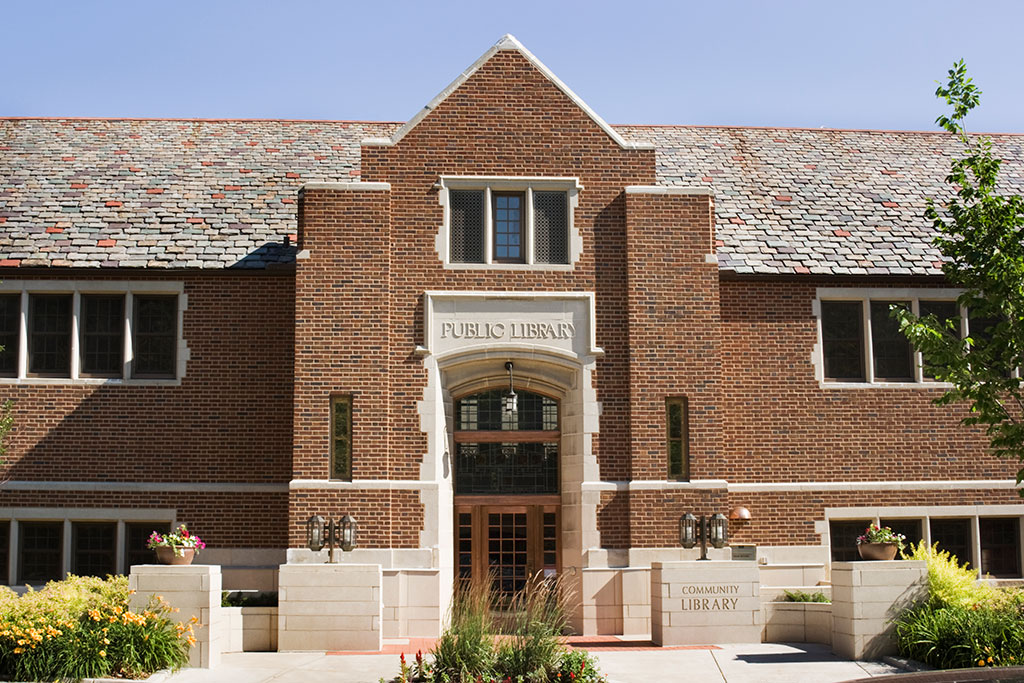The Perks of Public Libraries

In an age when information is readily available at our fingertips, public libraries may seem to have lost some of their luster.
However, these crucial institutions—numbering approximately 9,000 across America—are just as important as ever. After all, they not only open gateways to knowledge in the form of reading but also serve as foundations of culture and community engagement. And though the layouts and contents of their shelves may vary, every single library around the country, whether large or small, lends support to its citizens in a surprising number of ways.
Equal access
Of chief importance, public libraries create knowledge equity, granting everyone free access to information, the arts, and entertainment regardless of socioeconomic status. This can lend a lifeline to those who may otherwise experience obstacles to pursuing learning or reaching their educational goals. Libraries offer everything from new bestsellers to classic fiction to reference materials, and many even provide free internet access along with computers for staying productive or browsing casually.
While some institutions may charge for services such as printing and require proof of residency to check out materials, their facilities are generally free. So whether you’re looking to settle into a reading nook with the latest trending novel or catch up on local news, you can relax or work for hours without needing to pay a dime.

Respect for reading
Amid the dominance of digital entertainment and social media, public libraries foster a love for books and learning through story hours, reading programs, and educational workshops. These services are particularly valuable for children, who benefit greatly from discovering reading at an early age. The Child Mind Institute reports that reading helps kids develop not just their cognitive skills but also their critical thinking, ability to grasp new subjects, and empathy and emotional awareness. By providing free and broad access to reading materials that are geared toward different developmental stages, libraries enable parents to support their children’s reading skills, better setting them up for a lifetime of success.

Adult skills
Your education doesn’t have to end with the conclusion of your school days; libraries’ various tools help adults pursue lifelong learning, whether for recreational or career purposes. In addition to nonfiction and fiction reading materials, they often have resources for job seekers, professional-skills training, and even household management services such as budgeting workshops and health-care classes. For example, Philadelphia’s many libraries hold complimentary typing and resume-building courses, among many others. Meanwhile, the small Idaho town of Rexburg offers online guides to topics like nutrition and purchasing insurance, which locals can access from a library computer or the comfort of their homes.
In this way, public libraries provide accessible platforms for individuals to stay informed about and adapt to the evolving demands of the modern world. As a result, they can be empowered to thrive in their personal and professional lives, in turn fostering their own well-being and potentially boosting local economic growth.

Arts engagement and appreciatio
Beyond their role as repositories of knowledge, public libraries serve as vibrant cultural institutions that enable visitors to engage in many forms of creative enrichment, such as art exhibitions, discussions with authors, and workshop classes. The Cargill Gallery inside Minneapolis Central Library, for one, features diverse exhibits that spotlight local talent, while the Denver Public Library gives free passes to numerous historic and artistic locales around town. As a benchmark example of cultural enhancement, look to Washington, DC’s Library of Congress, which is the world’s largest library with not only millions of reading materials but also countless films, music records, and other fascinating artifacts to enjoy. Once again, libraries offer all this for free, inviting young and old alike to stimulate their creativity and indulge in the eye-opening power of the arts.

Community pride
The artistic value of libraries isn’t only contained within them. In fact, some act as local monuments that dignify their communities, imbue them with historical significance, and attract tourists with their architectural splendor. For example, the Juneau Memorial Library flew Alaska’s first forty-nine-state American flag after achieving statehood in 1959—and continues to do so today. Delaware’s Wilmington Public Library, another historic setting, serves as an impressive representation of eighteenth-century neoclassical architecture. And the small community of McAllen, Texas, gained nationwide attention when it converted an unsightly abandoned Walmart into an enormous public library. These and other institutions bring immense pride to their patrons, both for the beauty of their facades and the indispensable roles they play in their communities.

Regarding the enduring value of libraries, T. S. Eliot may have put it best: “The very existence of libraries affords the best evidence that we may yet have hope for the future of man.” It may be easy to underestimate the value of these often quaint and quiet institutions, but they hold great significance for communities throughout America. Whether you’re a regular at your local library or have yet to take advantage of its numerous services, it may just surprise you with how much it has to offer beyond books.
8 Views


